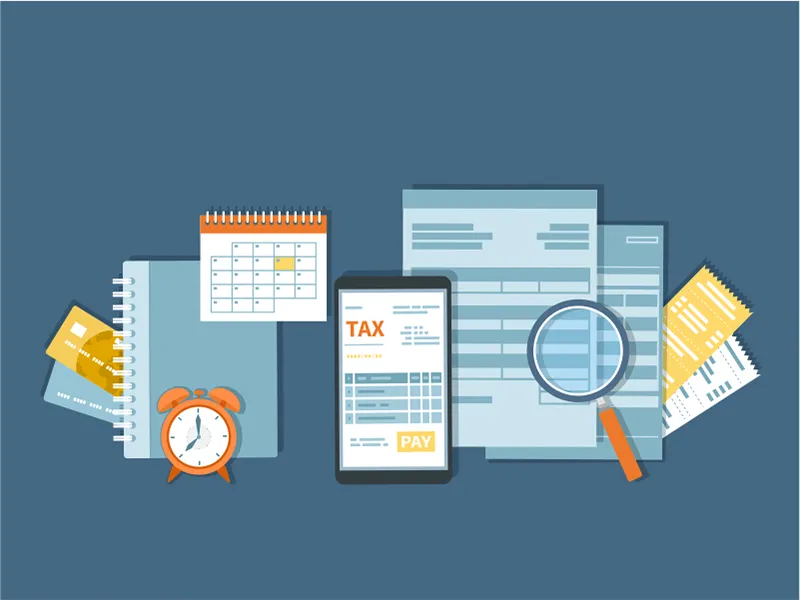
The Income Tax Act has provisions for imposing taxes on an individual’s income and also allows various mediums to claim deductions and rebates. Deductions can be claimed depending on the way the taxpayers spend their earnings. For salaried individuals, there is a provision for claiming standard deduction. By default, salaried individuals and pensioners can claim a certain amount as a standard deduction without making any investment or spending money. This provision was removed for a few years and re-introduced in the Budget announcement of 2018.
Here, we will discuss in detail about standard deduction for salaried individuals and how it impacts income tax.
What is standard deduction?
The provision of a standard deduction for both salaried employees refers to a flat deduction of Rs. 50,000 on taxable income. It offers tax relief to select individual taxpayers. Prior to Budget 2018, salaried individuals were allowed to claim reimbursement for travel expenses of maximum Rs. 19,200 and medical expenses of maximum Rs. 15,000.
Budget 2018 replaced these net claims of Rs. 34,200 with a standard deduction of Rs. 40,000 annually. This amount subsequently increased to Rs. 50,000 in Interim Budget 2019.
Why is standard deduction needed?
The main purpose of Standard Deduction is to bring parity between tax liabilities and benefits offered to salaried employees and self-employed individuals. Self-employed individuals enjoy the benefit of claiming various business-related expenses as deductions to bring down tax liabilities.
Salaried individuals, however, do not enjoy such benefits. Therefore, standard deduction was introduced to allow additional tax benefits to salaried individuals from the earlier limit of Rs. 34,200 (meant for travel and medical reimbursements) to Rs. 50,000. This benefit can be availed by all salaried individuals and pensioners, no matter the level of their annual income. Further, they need not submit bills for the expenses being claimed under this benefit.
Eligibility to claim standard deduction
All salaried individuals can claim standard deduction. Pensioners too can claim standard deduction since pension received from a previous employer is considered as income under the category “Salary” as per the Income Tax Act.
How does standard deduction work?
Salaried individuals can claim a standard deduction of up to Rs. 50,000 on their income. Pensioners can claim a standard deduction of a maximum of Rs. 50,000 or their net annual pension as a standard deduction, whichever is lower. Furthermore, taxpayers claiming family pension can claim up to Rs. 15,000 as a standard deduction. These benefits are now also included in the new tax regime as per the announcement in Budget 2023.
Here, we will explain with the help of an example, how one can calculate and know the tax outgo before and after standard deduction:
Suppose, Mr. Ashish has a taxable income of Rs. 10,00,000 in FY 23-24. If he opts for the old tax regime, he is eligible for deduction under 80C up to Rs. 1,50,000 and 80D up to Rs. 25,000.
Let’s take a look at how Mr.Ashish’s taxable income and tax liability will look like after the application of standard deduction. We’ll consider calculations as per the old tax regime and the new tax regime:
|
Particulars |
Tax liability under the old tax regime |
Tax liability under the new tax regime |
|
Gross total Income |
Rs. 10,00,000 |
Rs. 10,00,000 |
|
(-) Standard Deduction |
Rs. 50,000 |
Rs. 50,000 |
|
(-)Professional Tax |
Rs. 2,500 |
|
|
(-) Deductions under Chapter VIA |
||
|
80C |
Rs. 1,50,000 |
NA |
|
80D |
Rs. 25,000 |
NA |
|
Net Taxable Income |
Rs. 7,72,500 |
Rs. 9,50,000 |
|
Tax liability |
Rs. 67,000 |
Rs. 52,500 |
|
(+) Cess @4% |
Rs. 2,680 |
Rs. 2,100 |
|
Total Tax Liability |
Rs. 69,680 |
Rs. 54,600 |
Impact of standard deduction on salaried individuals
As discussed above, the standard deduction has replaced travel allowance and medical reimbursement. Thus, salaried individuals can avail of an exemption from their taxable income without any restrictions. Among the benefits announced in the interim budget 2019, one was an increased standard deduction for salaried individuals. The standard deduction was increased from Rs. 40,000 to Rs. 50,000. This is intended to help taxpayers lower their taxable income. Furthermore, Budget 2023 declared that the new tax regime will be the default regime going forward. Therefore, to increase the acceptability of the new tax regime, standard deduction applicability was also extended under the new tax regime to make it more beneficial to the taxpayers.
|
Particulars |
FY 2017-18 (AY 2018-19) |
FY 2018-19 (AY 2019-20) |
From FY 2019-20 (AY 2020-21) |
Up to FY 22-23 (New Tax Regime) |
From FY 23-24 (New Tax Regime) |
|
Gross Salary (in Rs.) |
6,00,000 |
6,00,000 |
6,00,000 |
6,00,000 |
6,00,000 |
|
(-) Transport Allowance |
19,200 |
NA |
NA |
NA |
NA |
|
(-) Medical Allowance |
15,000 |
NA |
NA |
NA |
NA |
|
(-) Standard Deduction |
NA |
40,000 |
50,000 |
NA |
50,000 |
|
Net taxable income |
5,65,800 |
5,60,000 |
5,50,000 |
6,00,000 |
5,50,000 |
How is standard deduction calculated in case of multiple employers in one year?
The standard deduction can be availed as a flat deduction from the total income earned by an employee in a particular financial year. It is irrespective of the number of jobs changed within a year by an employee. Thus, one flat deduction is applicable for the cumulative salary earned from all the employers in a financial year.
Conclusion
Salaried individuals can claim a standard deduction while filing income tax returns. Usually, employers consider standard deduction while calculating an employee’s tax payable. This helps employers in arriving at the deduction of TDS.
The last date for filing the income tax return is July 31 every year for taxpayers who do not fall under the tax audit provisions of the Income Tax Act 1961. This due date may change as per any further announcement by the IT department.
FAQs
- Are all allowances taxable for salaried individuals?
The nature of the allowance determines if it is taxable or not. Generally, allowances that are part of the salary break-up are partially tax-exempt. Certain allowances like City Compensatory Allowance, Special Allowance, and Overtime Allowance are taxable in the hands of the employee.
- Is there an income limit for standard deduction?
The standard deduction can be availed by most taxpayers who aren’t dependents. This is applicable irrespective of how much money they earn during a financial year. There’s no income cap applicable to standard deductions.
- Can standard deduction be claimed along with other deductions?
Yes, an individual can claim other deductions that are available under tax-saving investments like Section 80C (PPF, ELSS Funds etc), Section 80U and their sub-sections along with standard deduction.
- Can an employee claim both standard deduction & income tax deduction?
Yes, an employee can claim both standard deductions & income tax deductions.
- Is standard deduction applicable to employees of the Central or State Government?
Yes, the standard deduction is also available to central or state government employees.


























